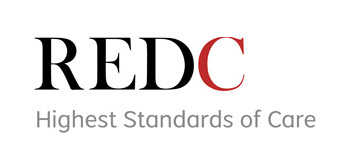The REDC believes all eating disorder programs should operate with high ethical standards. The REDC Ethics Committee oversees the REDC Code of Ethics and is available to members and the community for review of potential ethical concerns.
To submit an ethics-related grievance regarding a REDC member, please reach out to REDC at info@redcconsortium.org.
The code of Ethics is regularly reviewed and updated by the REDC Ethics committee based on regular review by the Standards Committee and adoption by the REDC Board.
REDC Code of Ethics: In 2018, and updated in 2021, REDC codified the principles in its Center of Excellence document into a Code of Ethics specifically for REDC member organizations. REDC’s members understand that just as they seek objective validation of other fields’ claims of high standards, their external stakeholders — members of the public, insurance companies, academics, regulators, and others — are more likely to trust them when they demonstrate a willingness to establish clear boundaries and practices. REDC’s Code of Ethics demonstrates that its members are governed by specific ethical principles. To submit an ethics-related grievance regarding a REDC member, contact REDC at info@redcconsortium.org.
Defining an Eating Disorder Center of Excellence: Created in 2017 and updated in 2018, 2020, and 2021. REDC’s Center of Excellence white paper defines best practices across the entire eating disorders treatment industry. This document serves as an important reference for eating disorders treatment programs that aspire to be best-in-class and seek a blueprint for such success, for patients and families making treatment decisions, and for the wider array of stakeholders — including insurance companies, regulators, media, and others — who seek a concrete understanding of what best-practice care looks like. Read an executive summary here.
REDC Marketing Best Practices: Created in 2017 and updated in 2018, REDC’s Marketing Best Practices identifies concrete ways for REDC members to evaluate their marketing practices. REDC’s policy states: “In marketing their services, REDC members should employ messaging that is truthful, fair, non-deceptive, capable of being substantiated, and in all respects lawful. Marketing messages from REDC members are expected to communicate substantive, critical information about a therapeutic service and arm patients and families with information that allows them to make informed treatment choices. Such messaging has treatment as its primary focus.”
